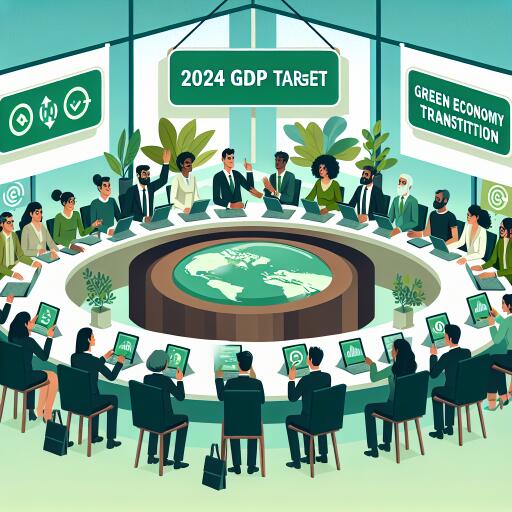
Step up Green Economy Transition for 2024 GDP Target, Conference Told
The call for a significant shift towards a green economy was at the forefront of discussions during a recent conference in Hanoi, where the Vietnam Annual Economic Report 2024 was unveiled. The event, organized by the VNU University of Economics and Business (UEB), put a spotlight on Vietnam’s economic prospects and the urgent need for sustainable practices to meet future GDP growth targets.
According to the insights shared, Vietnam’s economy could see a baseline growth of 5.85% this year, provided that public expenditure remains on track and foreign direct investment continues without major upheavals. This projection takes into account an expected inflation rate of 4.5%, along with a potential depreciation of the Vietnamese dong by 5-6%. Moreover, under a scenario of revised economic policies, solid export performance, and increased public investment, the GDP growth could reach approximately 6.01%.
Deputy Director of the UEB’s Vietnam Institute for Economics and Policy Research (VEPR), highlighted the importance of maintaining a focus on fiscal policy to stimulate demand, particularly through speeding up the execution of public investments. He advocated for the continuation of a 2% value-added tax reduction until the end of the year or even extending it to mid-2025. This move, aimed at boosting consumption, could be complemented by larger tax cuts and the introduction of more credit packages to support investments in sustainable production lines.
The emphasis on advancing digital transformation was also discussed as a long-term strategy to bolster Vietnam’s economic landscape. The development of the national digital transformation strategy should prioritize sectors that could yield substantial added value to the economy, such as software development, e-commerce, and innovation.
Renewable energy investment was another focal point of the conference. The dependency on fossil fuels is a growing concern, and transitioning towards renewable sources is seen as imperative. Collaboration among enterprises to share renewable energy infrastructure could play a pivotal role in this transition, aiding Vietnam in achieving its 2024 economic targets while ensuring sustainable growth.
The message from the conference was clear: stepping up the transition to a green economy is not just an option but a necessity for Vietnam as it navigates the challenges and opportunities of economic development in 2024 and beyond. As the country moves forward, the integration of sustainable practices across various sectors will be crucial in realizing its economic aspirations in an environmentally conscious manner.





Leave a Reply